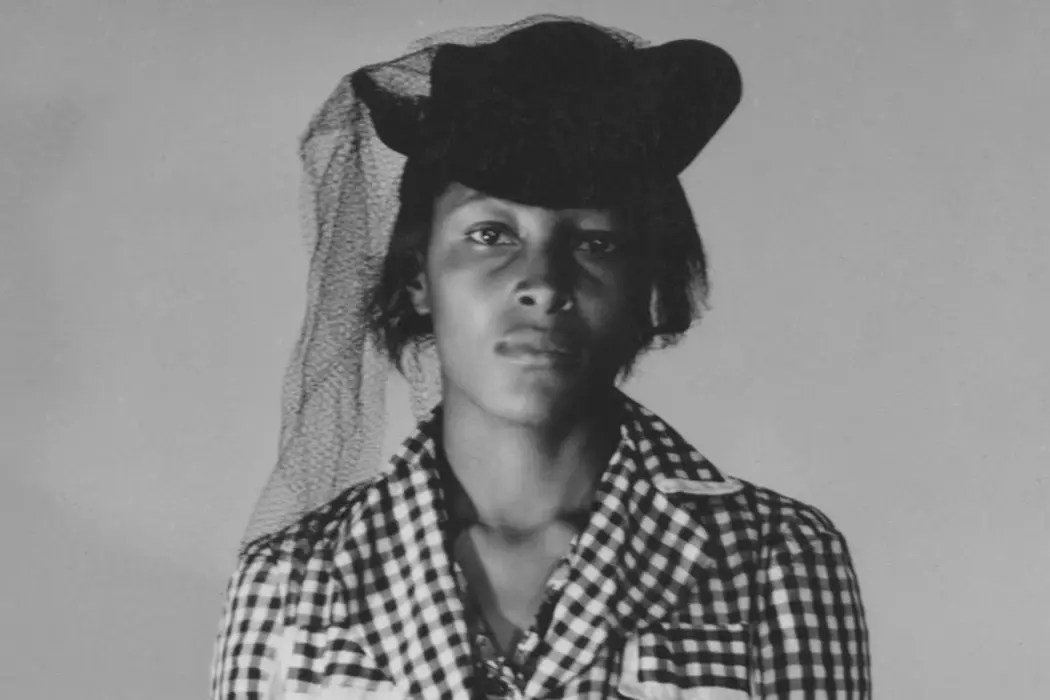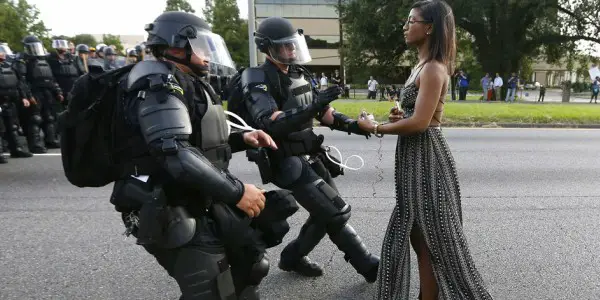THE RAPE OF RECY TAYLOR: A Story On The Systemic Silencing Of Black Women

Amyana Bartley is a screenwriter and producer. Her company, Queen…
There’s a discussion that the world is not having that needs to be had. That is, the mass extermination and silencing of black women and women of color, both historically and today.
Based on the book, “At The Dark End of the Street: Black Women, Rape and Resistance” by Danielle L. McGuire, The Rape of Recy Taylor brings to light one story of bravery in the face of insurmountable odds. Using family recounts, haunting imagery, and clips of “Race Films” from the 1940’s, director Nancy Buirski weaves together the mostly unheard of story of some of the black, female heroes of the American Civil Rights movement.
Just Another Night in the Jim Crow South
On a sultry, Alabama night in 1944, a young wife and mother embarks on the usual two mile walk home from church. Accompanied by a friend with a young son, she is unaware of how profoundly her life is about to change.

Six young, white men gather in a car looking for a night’s “fun”. They are bent upon “getting a woman”. They circle the small town of Abbeville’s black churches, scouring for a victim. They know all too well, that if their victim is a black woman, there will be no repercussions. They have been taught from birth that the bodies of black people “belong” to them, especially a black women’s. After all, in plantation days, it had been a right of passage for young, white men of a certain age to go to the slave quarters and pick out a woman to have their first sexual experience with. Black men had no capability of protecting their women, because they knew they’d be killed if they tried. Even though slavery had ended before 1944, the “plantation” way of thinking hadn’t.
The boys wait until Recy Taylor and her friend are at least a half mile away from their church, and any help, to strike. They pull alongside the two women, and get out. Recy knows she’s in a terrible situation and orders her friend and son to run. One of the boys has a shotgun, and orders Recy in the car. They blindfold her, take her to a remote spot, then force her to get undressed. Recy begs them not to hurt her, but it falls on deaf ears. All she can think about is getting home alive to her 9 month old daughter and her husband.
Each boy takes his turn raping and mutilating her, then they leave her on the side of the road.
A Legacy of Domination
Recy’s story isn’t unusual. The Antebellum, and post Civil War South didn’t leave any recourse for crimes committed by white people on black individuals. Patterns of violence against men and women of color were rampant. African Americans were treated as lower than animals for the most part. The Sheriff of Recy’s town, Lewey Corbitt, shares her family name, because his ancestors owned hers. What kind of justice can be obtained in a town where overt racism and sexism is a normal part of daily life?

Unlike many rape victims, though, Recy doesn’t blame herself after the incident. She knows what happened to her was not her fault and immediately goes to the police. Sheriff Corbitt promises to investigate the crime, personally knows the owner of the car she describes and instructs her and her family not to breathe a word of it to anyone else.
But Recy and her family keep talking. They talk to anyone they can about what happened, even calling their local NAACP for help. When the NAACP investigator, a young Rosa Parks, comes by their house, Sheriff Corbitt does all he can to get rid of her. He knows, if the word gets out nationally about this incident, it will put a bad light on his town. Rosa continues her investigation, even upon threat of arrest and death. With mounting pressure from many sides, Recy gets her date in court, but does she ever get justice?
The Hidden Heroes
Unbeknownst to many, the Civil Rights movement was initiated and promoted by black women. Because of purposeful suppression of their voices, many black women fought and died just for the ability to take up space. This fight started long before Martin Luther King Jr. and Malcom X were in the spotlight. According to this film, the majority of the audiences at the churches where these star activists spoke, were made up of black women. Also, some of the better known movements, like the Montgomery Bus Boycott, where Rosa Parks made her famous revolt, originated by scores of black women, who counted on the busses for daily transportation. We never heard anything about these revolutionaries, however, because the spotlight fell upon the men.
Recy Taylor’s defiance of the system, her courage and strength to stand up for truth and the hard work of the black press, are a testament to the struggle African Americans, and more distinctly, African American women, have faced for centuries.
Have Things Gotten Better?
We’d like to think that much of this mentality has changed in 2017 for the better. But even today, black women fight to be heard and for their very lives. According to a study by the CDC , homicide is one of the leading causes of death for African American women under 44, and nearly half of them are committed by intimate partner violence. The rate of indigenous and non-Hispanic, black women, who experience rape, stalking and other physical violence is 30-50% higher than any other race. Black women are all but shut out of film and filmmaking; positions of power in government, business and media; and the epidemic imprisonment of black men leaves most African American families without fathers, rendering the entire responsibility upon black mothers.

Buirski‘s documentary is eye opening. It challenges the historical status-quo and draws attention towards African-American women’s contributions to the Civil Rights movement. It is a necessary story to be told and a must for everyone to see.
But it raises other questions. At a time of great social movement for African Americans, such as Black Lives Matter, is it appropriate that the director and writer of this film is white? As a screenwriter, I’ve been told to “write what you know”, for better authenticity on a project and I believe that correlates for film makers as well. We’ve had women’s stories told by men for ages, and, most times, men are unable to communicate a woman’s experience authentically, because they aren’t women. We miss out on a lot of nuances that only a woman would understand.
Doesn’t that ring true for race in racially driven stories? Documentaries are, usually fact based, non-fiction, however, to pull together a fully comprehensive experience about black women, shouldn’t the story tellers also be black women? There was an emotional component in the film that seemed lacking, and I wondered if that was one of the reasons. I think an African American woman could have brought greater emotional regard to a subject she’s been forced to live with throughout her life. That experience and regard could translate into more connection with the audience, garnering more sympathy for the subject overall. A thought still lingers, though, on whether or not The Rape of Recy Taylor would have even been supported or distributed, if it had been made by a black woman.
Regardless of the answers to these questions, Buirski still brings forth a subject/theme that is essential and compelling. It is clear that society never has been, nor still isn’t, supportive of black women. We need to have more discussions about our problems with race and misogyny, and include women of color in those discussions. It is crucial for us to hear it from their voices and perspectives. History is incomplete without their representation and the future of a strong, healthy society, depends on them. The Rape of Recy Taylor couldn’t be more timely, but it is only the tip of the iceberg. Hopefully, it will open doors to the countless, unheard others, who’s stories need to be heard.
Do you think it’s important for films about race and gender to be told by those of the same race and gender? Tell us your thoughts in the comments below!
The Rape of Recy Taylor opened in the United States in select theaters on December 15, 2017. For all international release dates, see here.
https://www.youtube.com/watch?v=zyC7yHeFVZY
Does content like this matter to you?
Become a Member and support film journalism. Unlock access to all of Film Inquiry`s great articles. Join a community of like-minded readers who are passionate about cinema - get access to our private members Network, give back to independent filmmakers, and more.
Amyana Bartley is a screenwriter and producer. Her company, Queen B. Productions, supports filmmakers of all walks, interested in creating thought provoking, moving projects. As her company grows, she will create "real jobs" for any talented artist, in front of and behind the screen, who is passionate about making a difference using the art of film.













